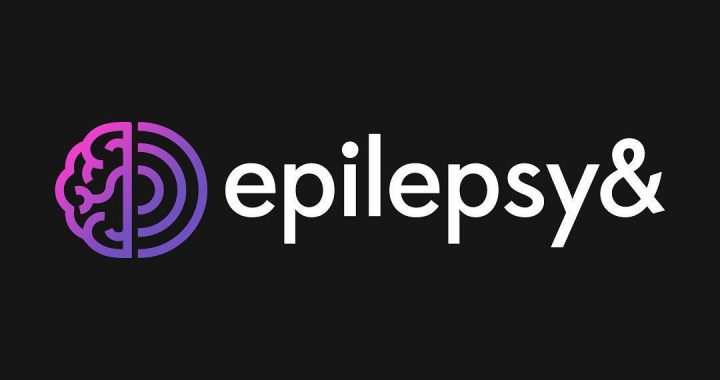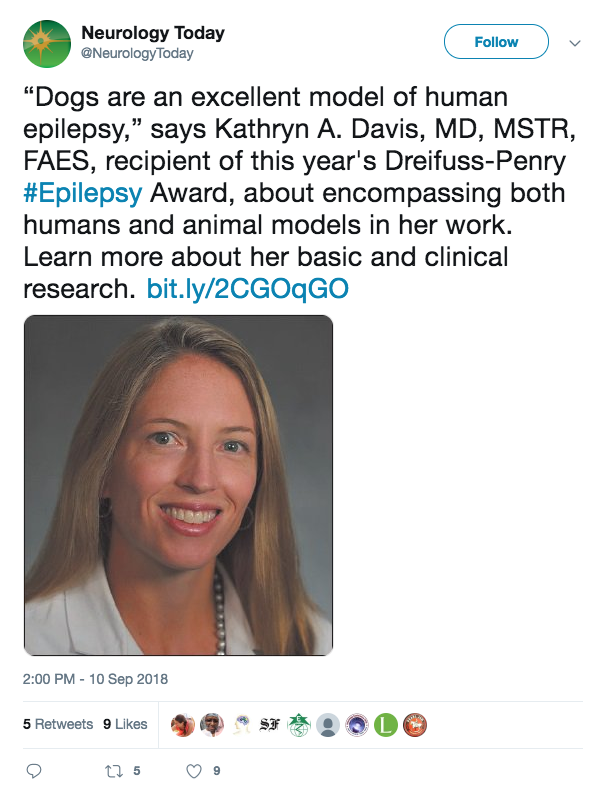This month Dr. Davis served as a panelist for NeurologyLive’s Peer Exchange video editorial series about novel treatments for epilepsy, diagnostic biomarkers for epilepsy, treatment guidelines and much more! She is joined by other renowned epileptologists across the country.
Click the links below to watch the episodes from the series (descriptions copied from Neurologylive.com):
Epilepsy Management: Gauging Limitations of Guidelines: The panel of experts considers how there are individualized limitations in using otherwise helpful clinical guidelines to manage patients with epilepsy.
When to Initiate Therapy in Patients With Epilepsy: With considerations for specific patient cases, the panel debates when the optimal time to initiate therapy for epilepsy would be.
An Unmet Need in Epilepsy? Diagnostic/Prognostic Biomarkers: Given previously unmet needs in diagnostic/prognostic biomarkers for epilepsy, experts consider how genetic markers and imaging might improve treatment.
Prominent Goals of Therapy in Epilepsy Management: Individualized goals of therapy for patients with epilepsy are outlined with regard to age, demographic, and safety/efficacy in treatment.
Tools in the Diagnosis and Evaluation of Epilepsy: Expert panelists share insight on the tools used to make an informed diagnosis of epilepsy and discuss genetic testing in adult versus younger groups.
Improving Epilepsy Understandings: ILAE 2017 Classification: A comprehensive review of the classification of seizure types by the ILAE in 2017 and how that has improved patient categorization.
Evolving Knowledge of Epilepsy Incidence and Etiology: A panel of experts elucidate updated information regarding the incidence and causes of epilepsy that may lead to better, more accurate management.
From NeurologyLive’s Website: “NeurologyLive™ offers a print and digital media platform to busy healthcare professionals treating neurological diseases to deliver practice-changing news and insight directly from top medical conferences and researchers.”



 Dr. Preya Shah, PhD, an former MD/PhD student in the Center for Neuroengineering and Therapeutics, published a paper on Monday in Human Brain Mapper with research completed as part of her doctoral thesis. This article, entitled “Structural and functional asymmetry of medial temporal subregions in unilateral temporal lobe epilepsy: a 7T MRI study,” provides insights on how 7T MRI can be used in localizing brain network disruptions in mesial temporal lobe epilepsy (TLE) patients and consequently in distinguishing between TLE subtypes.
Dr. Preya Shah, PhD, an former MD/PhD student in the Center for Neuroengineering and Therapeutics, published a paper on Monday in Human Brain Mapper with research completed as part of her doctoral thesis. This article, entitled “Structural and functional asymmetry of medial temporal subregions in unilateral temporal lobe epilepsy: a 7T MRI study,” provides insights on how 7T MRI can be used in localizing brain network disruptions in mesial temporal lobe epilepsy (TLE) patients and consequently in distinguishing between TLE subtypes.


 Dr. Davis has been highlighted by the American Academy of Neurology’s September 6th issue of “Neurology Today” in light of her recognition with the Dreifuss-Penry Epilepsy Award. In this article she discusses the work she has done in the first 2 years of her NIH K23 award, the direction of her future research and her journey towards a career as an epileptologist with Neurology Today’s Dan Hurley.
Dr. Davis has been highlighted by the American Academy of Neurology’s September 6th issue of “Neurology Today” in light of her recognition with the Dreifuss-Penry Epilepsy Award. In this article she discusses the work she has done in the first 2 years of her NIH K23 award, the direction of her future research and her journey towards a career as an epileptologist with Neurology Today’s Dan Hurley.